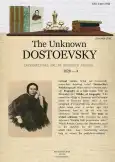Dostoevsky’s Pushkin speech in the testimonies of contemporaries
- Authors: Viktorovich V.A.1
-
Affiliations:
- State Social and Humanitarian University
- Issue: Vol 7, No 4 (2020)
- Pages: 48-69
- Section: Articles
- URL: https://journal-vniispk.ru/2409-5788/article/view/286554
- DOI: https://doi.org/10.15393/j10.art.2020.5101
- ID: 286554
Cite item
Full Text
Abstract
The article provides a critical analysis of the sources that report the details of Dostoevsky’s Pushkin speech on June 8, 1880. They include letters, diaries and memoirs of listeners, telegrams and reports in newspapers and journals of the time. A cross-examination of existing and newly discovered sources revealed a number of conjectures, which usually emerge due to ideological considerations. The focus is on the memoirs of E. P. Letkova-Sultanova and D. N. Lyubimov, which depicted the event from ideologically opposed points of view. Thus, Letkova strongly denies the moment of unanimity of Dostoevsky’s audience, recorded by other memoirists, and insists on the initial rejection of his speech by radical youth. Her memoirs usually arouse the confidence of researchers, since the author confirms his judgments with excerpts from his personal diary regarding the two-day the Pushkin celebration (June 7 and 8) that assert the priority of Turgenev. Letkova’s memoirs were published in 1932. However, another, earlier and previously unpublished text has been preserved in The Russian State Archive of Literature and Arts in the N. S. Ashukin collection. It comprises five handwritten pages of the article “June days of 1880 in Moscow (From the diary of Ekaterina Letkova)”. Comparison of the early (1924) and late (1932) editions of Letkova’s “diary” leads to the unequivocal conclusion that this “diary” was a later mystification, which was supposed to confirm the righteousness of progressive forces in their opposition to Dostoevsky (this motive was significantly emphasized in the 1932 edition). The memoirs of D. N. Lyubimov are structured in the same manner, only differing in that they covered the event from a conservative point of view. Lyubimov’s memoirs are relevant for researchers, since he described Dostoevsky’s audience in a more detailed way than other memoirists. This description should have led to the idea of consolidating the best members of Russian society. However, a critical analysis of this source showed that more than half of those who listened to Dostoevsky according to Lyubimov could not have attended the meeting. The memoirist also distorts the Turgenev’s perception of Dostoevsky’s speech (he allegedly “sobbed” when the speaker compared Lisa Kalitina to Tatyana Larina). Criticism of sources allows us to clarify a number of aspects in the perception of Dostoevsky’s Pushkin speech as a key event in Russian culture, to approach its understanding on the basis of verified evidence from contemporaries.
About the authors
Vladimir A. Viktorovich
State Social and Humanitarian University
Author for correspondence.
Email: VA_Viktorovich@mail.ru
Doctor of Philology, Professor of the Department of Russian language and literature
Russian Federation, ul. Zelenaya 30, Kolomna, 140410References
- Volgin I. L. Posledniy god Dostoevskogo [The Last Year of Dostoevsky]. Moscow, AST Publ., 2017. 780 p. (In Russ.)
- Dolinin А. S. Comments. In: F. M. Dostoevskiy v vospominaniyakh sovremennikov: v 2 tomakh [F. M. Dostoevsky in Memoirs of His Contemporaries: in 2 Vols]. Moscow, Khudozhestvennaya literatura Publ., 1964, vol. 2, p. 471. (In Russ.)
- Dostoevskiy F. M. Polnoe sobranie sochineniy: v 30 tomakh [The Complete Works: in 30 Vols]. Leningrad, Nauka Publ., 1972–1990. (In Russ.)
- Levitt Marcus C. Literatura i politika: Puskinskiy prazdnik 1880 goda [Russian Literary Politics and the Pushkin Celebration of 1880]. St. Petersburg, Akademicheskiy proekt Publ., 1994. 265 p. (In Russ.)
- Letopis’ zhizni i tvorchestva F. M. Dostoevskogo, 1821–1881: v 3 tomakh [The Chronicle of Dostoevsky’s Life and Works: in 3 Vols]. St. Petersburg, Akademicheskiy proekt Publ., 1995, vol. 3: 1875–1881. 614 p. (In Russ.)
- Tyunkin K. I. Comments. In: F. M. Dostoevskiy v vospominaniyakh sovremennikov: v 2 tomakh [F. M. Dostoevsky in Memoirs of His Contemporaries: in 2 Vols]. Moscow, Khudozhestvennaya literatura Publ., 1990, vol. 2, p. 566. (In Russ.)
- Fokin P. E., Petrova A. V. Pushkin Speech by Fedor Dostoevsky as an Event (Based on the Materials of the Manuscript Fund of the Vladimir Dahl State Museum of the History of Russian Literature). In: Neizvestnyy Dostoevskiy [The Unknown Dostoevsky], 2020, no. 2, pp. 162–195. Available at: https://unknown-dostoevsky.ru/files/redaktor_pdf/1595258841.pdf (accessed on September 1, 2020). doi: 10.15393/j10.art.2020.4681 (In Russ.)
Supplementary files










